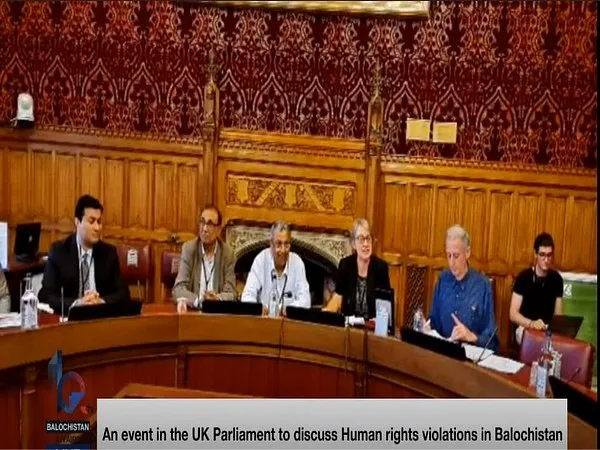A number of Baloch activists gathered at the event, hosted by Baroness Natalie Bennett, Member of House of Lords at British Parliament on Tuesday to carry out the campaign to make Pakistan accountable for human rights violations in Balochistan.
Hosting a meeting titled “Baloch Lives Matter” in Cabinet Room, Bennett opined that human rights violations in Balochistan could not be ignored under any pretext, and Pakistan must answer what is going on over there.
The event was attended by Dr Naseer Dashti, Executive President of Baloch Human Rights Council; Dr Burzine Waghnar, Researcher at School of Oriental and African Studies; Dr Lakhumal Luhana, General Secretary World Sindhi Congress and Peter Tatchell from the Peter Tatchell Foundation.
A documentary produced by Baloch Human Rights Council was displayed and gave a brief background of the Baloch conflict with Pakistan.
While briefing the meeting on the human rights violations and atrocities perpetrated in Balochistan, Dashti observed that the international community’s intervention is imperative. He further said that the international community should not do discrimination in dealing with crimes against humanity committed in Europe, Africa, and Balochistan, Baloch Human Rights Council said in a statement.
Meanwhile, another speaker, Waghmar noted that China played an important role in destroying the environment of Balochistan. He said that China entered Balochistan in disguise of development with its multi-billion CPEC projects but it has only contributed to destroying the environment and the socioeconomic marginalization of the people.
Explaining the reasons behind Balochistan and Sindh being under the occupation of Pakistan, Luhana said that both the provinces have 80 per cent of the wealth of the country, which is geo-strategically important. He said that all human rights conditions listed under the UN charter have been violated by Pakistan.
Luhana observed that the atrocities on the Baloch and Sindhis have reached unprecedented levels. He further urged the civilized world to act before it is very late for the Baloch and Sindhis.
Meanwhile, another speaker, Tatchell observed that human rights violations in Balochistan are a direct result of Pakistan’s forcible annexation of Balochistan into Pakistan and the subsequent struggle of the Baloch people for their right to self-determination, according to the Baloch Human Rights Council.
In this regard, Tatchell proposed a stepwise plan to peacefully resolve the Baloch conflict with Pakistan. The steps included an UN-supervised ceasefire, release of all disappeared prisoners, opening Balochistan to international media, rehabilitation of internally or externally displaced persons, and an UN-supervised referendum to find out the will of the Baloch people.

